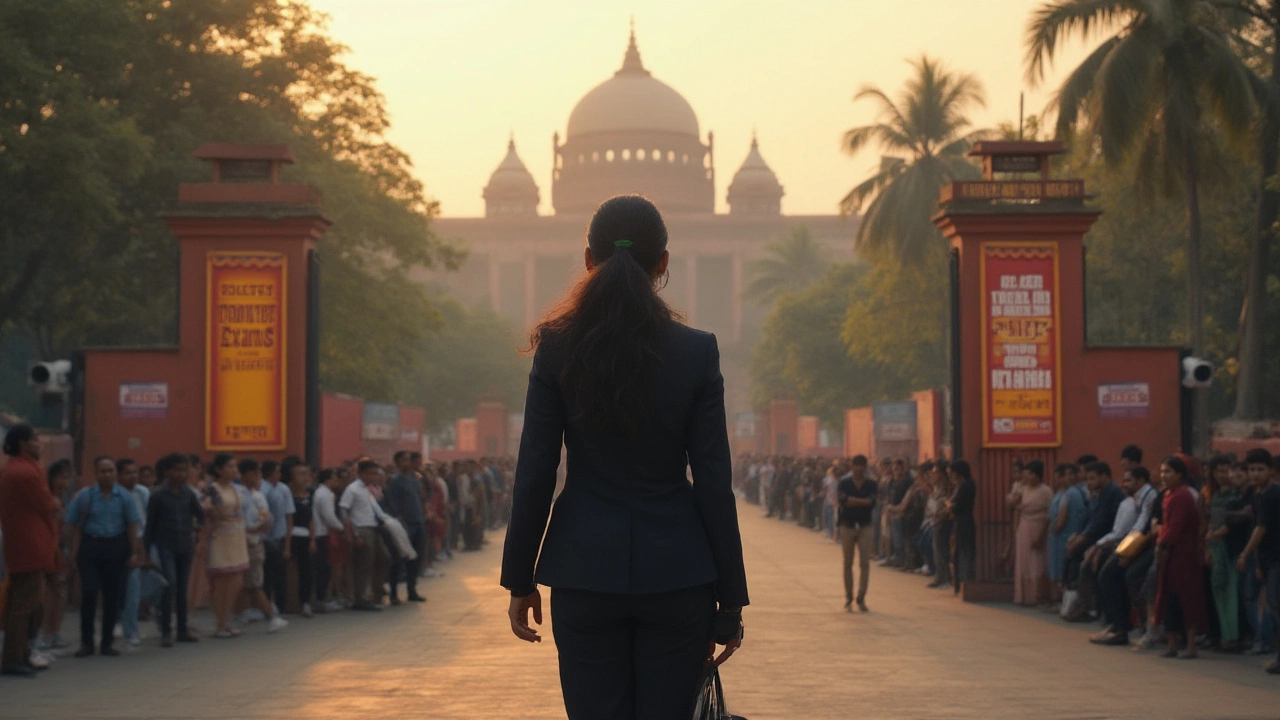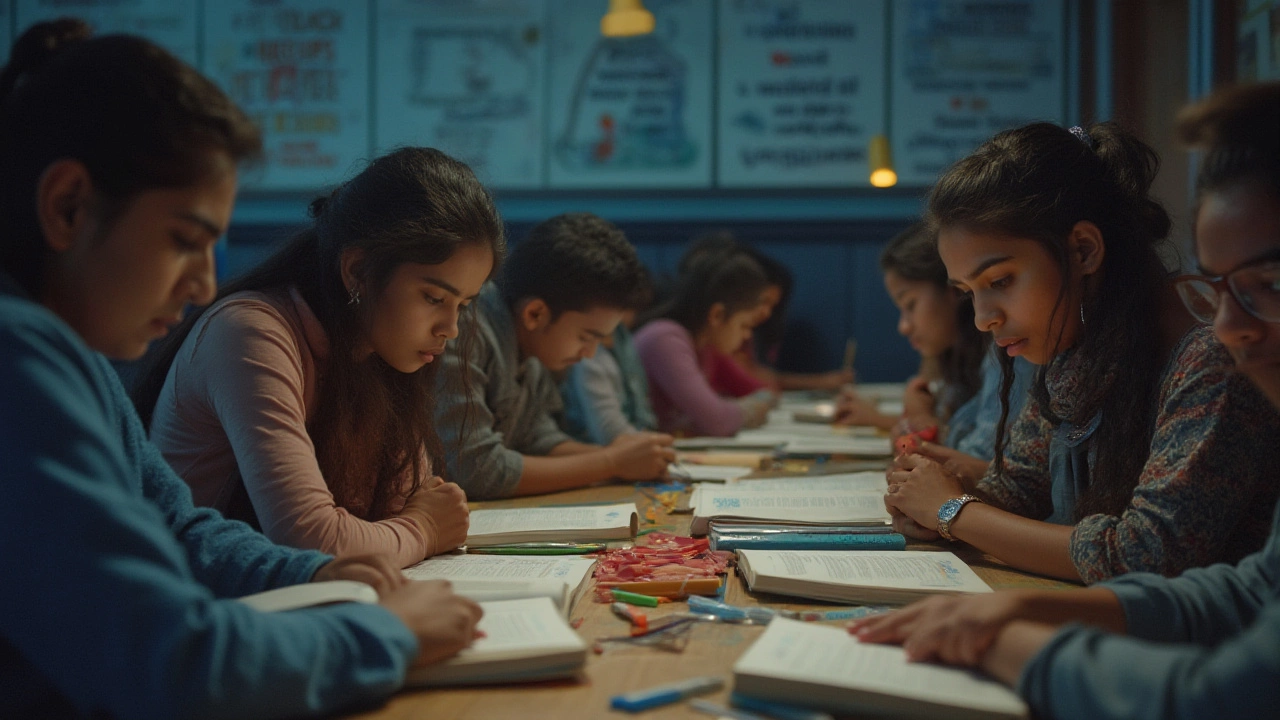You think finals week is rough? Imagine spending years preparing for an exam knowing only a fraction of people make it through—sometimes with less than a 1% success rate. Some tests aren't just hard; they're legendary. These exams wreck sleep schedules, break the strongest spirits, and serve as the gateway to the world's most prestigious jobs and institutions. People give up hobbies, skip family trips, and pretty much put life on pause just to survive the grind. Personally, with Hudson eyeing his future, I can’t help but wonder how anyone gets through something this brutal. Ready to peek behind the curtain?
The Gauntlet: What Makes an Exam the Toughest?
It's not just about impossible questions or mind-bending riddles—though there’s plenty of that. Tough exams squeeze you with time limits, cover mountains of material, and test you again and again. Many require more than just memorizing facts. You’re expected to analyze, create, and make split-second decisions under insane pressure. The world's toughest exams combine psychological stress, vast syllabi, and, sometimes, physical endurance.
So what gets an exam on the “world’s hardest” list? Usually, three things: brutal selectivity, ultra-difficult content, and huge consequence. Failing the exam often means waiting years to try again or losing a shot at a life-changing job. Sometimes, the stakes are so high, people train like professional athletes. Families dedicate their savings. Candidates hire tutors and coaches, even live in special prep schools. That’s not an exaggeration.
Let’s talk numbers for a second. The IIT-JEE in India sees about 1.2 million applicants gunning for just a few thousand seats. Stats like that make a 10% acceptance rate look generous. Even U.S. bar exams and medical boards don’t compare. And while a 100-question multiple choice test might seem easy, when each problem is designed to trick, challenge, and exhaust, things get ugly fast.
The pressure is real. The root of the challenge is not just hard content but the expectation to be perfect, consistently, and fast. When you see doctors, pilots, or engineers from these paths, trust me—they've earned it. One famous spokesperson for Asian education summed it up:
"These exams are not just tests of knowledge, but tests of character, resilience, and the will to succeed against the odds."
The Top Three: Crossing the World’s Hardest Hurdles
When the dust settles, three exams rise to the top: the Indian IIT-JEE, the Chinese Gaokao, and the U.K.’s All Souls Fellowship Exam at Oxford. Each is infamous in its own way, infamous enough that just surviving it is a badge of honor.
- IIT-JEE (Joint Entrance Examination – Advanced). This beast is the golden ticket to India’s top tech schools—the IITs. To even attempt the JEE Advanced, you have to first ace the JEE Main, which most people don’t. Each year, over a million try, around 10,000 make the cut. That’s less than 1%. The content? Brutal. Physics, Chemistry, Math—questions that seem like wicked puzzles even to experienced engineers. I once quizzed a friend who passed, and he laughed, saying he felt like his brain was on an obstacle course for two years straight.
- Gaokao (China’s National Higher Education Entrance Examination). This is China’s college entry exam, and it’s more than a test—it’s a national event. Families pack up and move closer to the best schools. Students literally undergo years of ‘Gaokao camps.’ Some even wear diapers to avoid bathroom breaks during the eight-hour ordeal. Misplace a decimal? That could mean leaving your hometown for factory work instead of university. Millions swipe at this brass ring, but only a sliver reach the top-tier schools.
- All Souls College Fellowship Exam (Oxford, UK). Not as famous as the others, but maybe the most twisted intellectually. This isn’t about memorizing. Applicants get essay questions so odd, so broad, you almost have to invent a discipline to answer. Past questions include, “Is virtue its own reward?” or simply, “Water.” Candidates write essays as thick as novellas, then defend them in grueling interviews. Maybe two people are picked each year. Being selected means lifelong academic paradise and international respect.
All three tests prize originality under fire. You can’t just memorize your way through; you have to show something special. There’s a reason people call them ‘life-changing’—one right answer can shift you onto a new path forever.

What’s It Really Like to Take One?
If you think regular exams are stressful, you haven’t seen anything yet. For the Gaokao, towns get eerily quiet the night before, like everyone’s holding their breath. Relatives light incense for luck. Some students study for 15 hours a day for three straight years—yes, three. During test week, parents will cook “brain food,” and even traffic police clear the roads to make sure students aren’t late.
For the IIT-JEE, coaching is almost a rite of passage. Parents scrimp and save to send their kids to special schools, where students live, eat, and breathe formulas and equations. Kids bunk up like athletes at training camp, only instead of weights, they're lifting textbooks. One survey said over 80% of top scorers had been in some sort of intensive prep program—not just after-school tutoring, but actual boarding-style camps.”
Then there’s the All Souls Fellowship. There’s no standard reading list. No way to “cram.” Candidates are usually among the best of Oxford graduates. One year, a girl reportedly wrote eight pages on “Innocence” with no prior heads up. You face an interview with a panel of scholars, who challenge every word, every premise. If you slip up, there's no do-over: it only happens once every few years.
Every exam has its own set of legends. A famous Gaokao tale claims a student scored a perfect mark—younger students still try to hunt him down for advice. In IIT-JEE circles, you hear stories about someone solving an “unsolvable” question in the last minute, or drawing diagrams in the margins when all else failed. Makes me realize regular school drama doesn’t even scratch the surface.
Tactics, Tips, and Secrets from the Survivors
There’s no magic bullet for these monsters. But the folks who pass them tend to share some battle-tested habits.
- Systematic Planning. Survivors often use detailed study calendars, not just vague “to-dos.” Some break their year into monthly, weekly, and even hourly goals. It’s more like marathon training than cram night.
- Mock Tests and Past Papers. Practicing with actual exams trains your brain for the real thing. In China, top students finish ten or more simulated Gaokao tests before the actual day. In India, those prepping for IIT-JEE turn to so many mocks, they can spot recurring patterns in trick questions.
- Peer Groups. Studying alone wears you down. Many successful candidates form or join small study groups—sometimes online, sometimes face-to-face. They explain problems to each other, share resources, and keep each other fired up during slumps.
- Mind and Body. Everybody talks about “grit,” but you can’t run on fumes forever. The smartest people schedule breaks, get enough sleep, and play sports or do something fun, even if just for short bursts. Coaches in India and China actually lecture about nutrition and relaxation techniques before test season.
- Emotional Support. Those marathon months get lonely. Families often get involved, offering daily pep talks and cooking special meals. Some teachers become more like mentors or counselors.
If you or someone you know is aiming for one of these exams, remember—it’s not just brains; it’s stamina, planning, and support. Hudson’s lucky his toughest hurdle right now is spelling homework, but if he ever sets his sights on one of these behemoths, I’ll remind him of what works: “Practice hard, keep your cool, and don’t try to go it alone.”
So next time you hear someone moaning about a tough test, just picture the kids writing essays on the meaning of ‘water,’ the ones hunched over engineering problems that stump machines, or families praying outside Chinese exam halls. Some exams aren’t just a rite of passage, they’re a battle. And the survivors? They’ve truly earned their next chapter.
